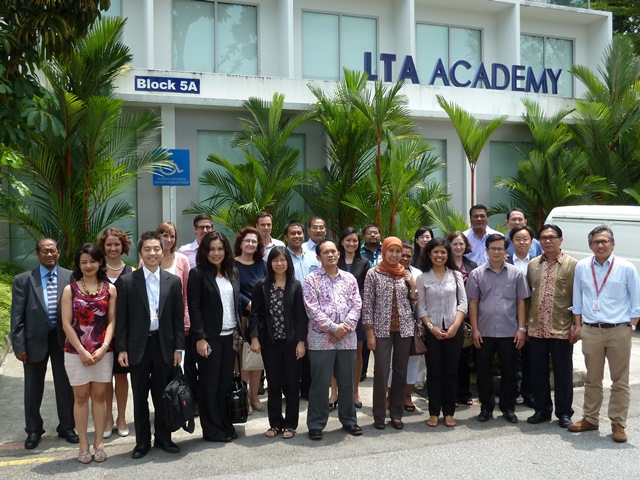US, China Agree on Climate Change Mitigation Actions
The US and China agreed to five new action initiatives to reduce greenhouse gas (GHG) emissions and air pollution, focusing on: emission reductions from heavy-duty and other vehicles; smart grids; carbon capture, utilization and storage (CCUS); the collection and management of GHG emissions data; and energy efficiency in buildings and industry.
UNFCCC's Momentum for Change 2012 Report Focuses on the Urban Poor
The UNFCCC Secretariat has released the 2012 report on the Momentum for Change Initiative. The report features nine experiences that contribute to address climate change while improving livelihoods and living conditions in developing countries’ urban areas.
UNFCCC Releases SBSTA Documents for Bonn Session
The UNFCCC Secretariat has released a series of documents that will be discussed by the Subsidiary Body on Scientific and technical Advice (SBSTA) at its 38th session, taking place in Bonn, Germany. The documents relate to methodological issues related to the Kyoto Protocol, the new market-based mechanism, emissions from international transport, the UNFCCC reporting guidelines, high-carbon reservoirs, and a framework for various approaches.
ADB Finances "Green" Buses in People's Republic of China
The ADB project is supporting the expansion of “green” bus services in the People’s Republic of China, an initiative that will benefit low-income commuters, improve air quality and reduce GHG emissions. The initiative is in line with the $175 billion commitment made at the June 2012 UN Conference on Sustainable Development (UNCSD, or Rio+20) by multilateral development banks to improve transport in developing countries between 2012 and 2022.
ADB E-Trike Project to Reduce Carbon Dioxide Emissions in the Philippines
The Asian Development Bank (ADB) is supporting a five-year project to replace 100,000 gasoline-burning tricycles with energy efficient electric tricycles, or E-Trikes, in Metro Manilla and urban centers in the Philippines. The E-Trike project will reduce carbon dioxide emissions by approximately 260,0000 tons annually and contribute to improved air quality. The project will also avoid US$100 million in fuel import costs, which will reduce dependency on foreign oil imports and increase driver income.
IEA Bioenergy Newsletter Highlights Bioenergy Potential and Challenges in Austria
The International Energy Agency’s (IEA) Implementing Agreement on Bioenergy (IEA Bioenergy) newsletter notes that while bioenergy can contribute to Austria’s renewable energy targets, new technologies for transport fuels will need to be suported, while also discussing activities at the November Executive Committee meeting and Task 40 on Sustainable International Bioenergy Trade.
UNEP Risø Centre Newsletter Highlights TNA Project and Electrification in Africa
The UN Environment Programme (UNEP) and the UNEP Risø Centre (URC) December’s newsletter includes stories on the Technology Needs Assessment (TNA) project and electrification in Africa, including efforts within the Sustainable Energy For All Initiative (SE4ALL). The newsletter also features several stories on the Clean Development Mechanism (CDM), including capacity building projects in the African, Caribbean and Pacific (ACP) region.
ESMAP Report Finds Large Potential for Low-Carbon Growth Strategies
The Energy Sector Management Assistance Program (ESMAP) of the World Bank report, which is based on analyses in Brazil, China, India, Indonesia, Mexico, Poland and South Africa, finds that many of the greenhouse gas (GHG) reduction measures pay themselves back, while ambitious global action to reduce technology costs, scale up private sector financing, and provide climate financing is still required.
Event: Transforming Transportation 2013
The World Bank and the World Resources Institute’s (WRI) sustainable transport center, EMBARQ, will co-host the 10th annual “Transforming Transportation” event on sustainable transport. The 2013 agenda will discuss, inter alia: capitalizing on the multilateral development banks’ $175 billion commitment for sustainable transport made during Rio+20; opportunities for sustainable transport in China, India and Latin America; integrating urban transport and development; improving transport health and safety in cities; and bringing shared bicycle solutions to scale in developing countries.
